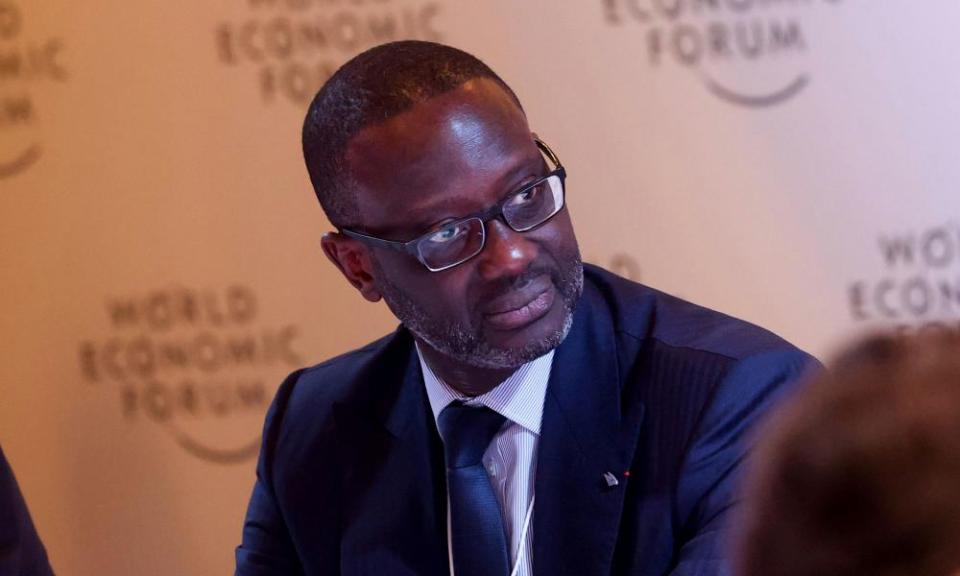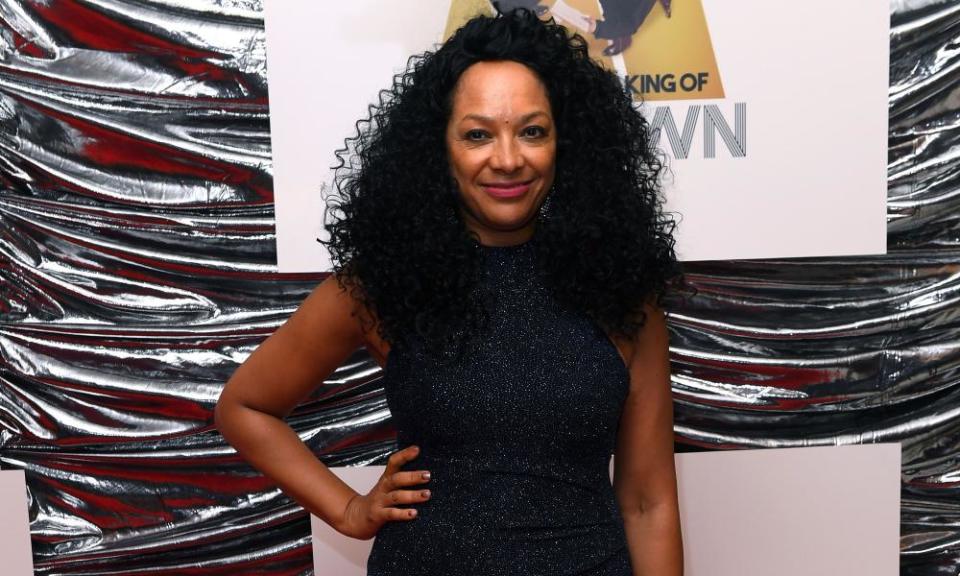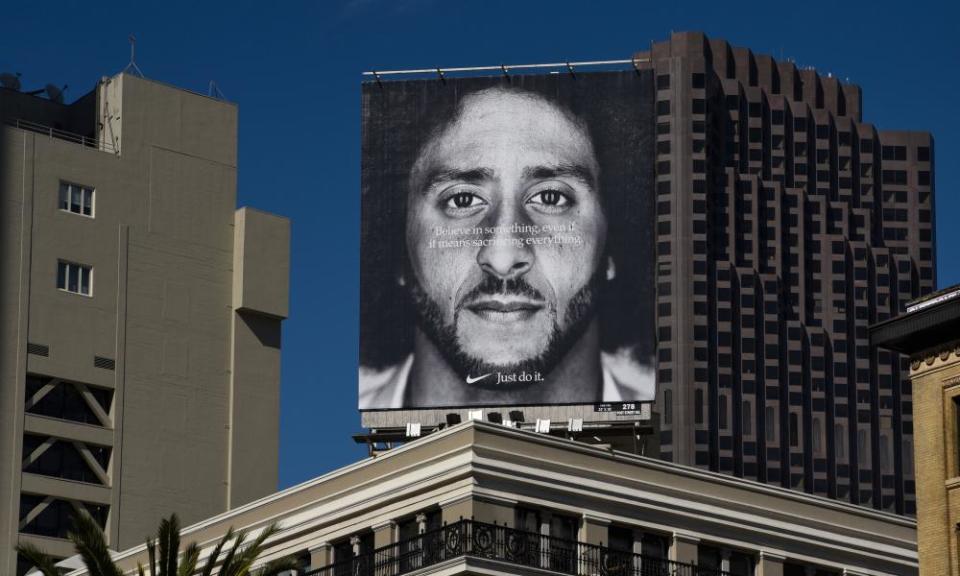Firms are waking up to race issues, but critics say hashtags aren’t enough

Three years ago, Pepsi’s response to the Black Lives Matter movement was an ad in which white reality-TV millionaire Kendall Jenner dressed up as a protester and offers a can of cola to a police officer.
As glaringly crass as that seemed at the time – the ensuing outcry led to Pepsi pulling the commercial from the airwaves – it would be unlikely to see the light of day in 2020. Corporate responses to social justice campaigns do appear to be evolving.
A study last week from University College London looked at how major British businesses had flourished as a result of the slave trade. Among those that swiftly acknowledged the shameful chapters in their histories and promised donations to groups supporting BAME people were Lloyd’s of London and brewer Greene King.
Royal Bank of Scotland looks likely to follow suit, and the CBI and Institute of Directors have urged all British firms to look to their pasts.
“This time feels different,” says Mary Agbesanwa of accountant PwC. “Companies have realised that it’s not good enough to just not talk about race.”
Agbesanwa, who tops the EMpower 100 Ethnic Minority Future Leaders list, published by the INvolve consultancy last week, adds: “They are being a lot more active in starting those discussions, and there is more appetite from people wanting to learn.”
WPP, the world’s biggest advertising company, has responded to an open letter from 1,200 black industry professionals with a $30m pledge to fight racism and invest in black talent.
In the US, Twitter risked a backlash from Trump supporters when it censored the president for tweeting “When the looting starts, the shooting starts” – a phrase with well-documented racist origins. And calls for a federal holiday on Juneteenth – 19 June – to commemorate the emancipation of slaves have gathered momentum, with firms such as Nike and Lyft offering paid days off.
Amid all the pain and anger associated with inequality, such moves have raised hopes that giant corporations are starting to up their game.
Suki Sandhu, boss of INvolve, has been inundated with queries from companies seeking advice on making meaningful change, often in response to pressure from staff. “Employees are becoming more activist because they’re sick of all talk and no action,” he said. “In the past, companies might have wanted to do something about race but haven’t known how and there hasn’t been that catalyst. Now there has.”
Companies are coming under pressure to do more than make one-off donations or post hastily composed social media messages. “It has been galling to see companies posting hashtags when for years calls for support fell on deaf ears,” said Kanya King, founder of the Mobo music awards. “But organisations are realising they will be held accountable, especially by younger generations.”
Agbesanwa, Sandhu and King all stress the importance of businesses collecting robust information about workforce diversity.
“We need to see the data in their annual reports so we can hold them accountable,” says King. “That’s a chance to shine a light on inequality. When we had gender pay gap reporting, that was pretty astonishing.”

Once they have the data, adds Sandhu, companies must use it. “Leaders and CEOs need to be – I don’t want to use the word ‘woke’ – more inclusive. They should be going through training about inclusive leadership. What are you doing to drive the pipeline? Is there that ethnic minority talent? If not, hire it in. The founder of Reddit stepped down to make space for a black person. I can’t think of a better example of using your privilege for good.”
Race isn’t the only issue fuelling corporate change. Nor is the notion of business as a driver of social justice new. The late Body Shop founder Anita Roddick campaigned vigorously on issues such as animal testing and fair trade when it was rare for business leaders to do so. Absolut Vodka, owned by Pernod Ricard, has links with the LGBT community that go back to the 1980s, when such support carried commercial risk.
Today, it is more common to see companies engaging with ethical or social campaigns. The MeToo movement resulted in a string of revelations about sexual harassment that shook the corporate landscape.
In the UK, Ted Baker boss Ray Kelvin had to resign over allegations of “forced hugging”, and allegations of racial and sexual abuse were made against TopShop owner Sir Philip Green – claims he strenuously denied. Lloyd’s of London drew up a strict code of staff conduct after a string of harassment claims.
On the issue of climate change, oil giants such as BP and Shell have made commitments to reducing emissions, and Dutch airline KLM bowed to the Swedish flygskam (flight shame) campaign by advising customers to fly less and replacing one route with a high-speed train.

But some corporate responses merit a degree of scepticism. Last year, Unilever boss Alan Jope criticised the business community for “woke-washing” – using the trappings of social justice for commercial gain. Marks & Spencer’s LGBT sandwich, launched for Pride 2019, was held up as a high-profile example.
If companies really care about equality, says Armine Ishkanian, social and economic equity lecturer at the London School of Economics,
they should pay living wages, change hiring and promotion practices, and ensure diversity on their board.
The US’s “Fight for $15” living wage movement has not had wide support from big business, she says. “When corporations refuse to do that but do these other things that don’t hit their bottom line, we have to ask what they are really responding to.”
Amid the woke-washing and posturing, it can be difficult to see what is authentic and what isn’t.
David Hynam, chief executive of healthcare firm Bupa, is a regular on lists of champions for both LGBTQ and BAME people in the workplace. He wants to see more companies matching words with deeds: “Some companies have been making progress on this for years, while others have only just started.

“Just because we’re seeing progress doesn’t mean we can be complacent.”
Changes firms can make, he says, include anonymising CVs to prevent unconscious bias. Bupa does this, and takes around 25% of its apprentices from ethnic minority backgrounds.
Hard data on the minority experience at work suggests such steps are long overdue. In February, an update from the Parker review – a government-backed report into ethnic diversity in boardrooms – showed BAME people held only 16.8% of director positions across the FTSE 350 index.
Bank of England statistics show that white people are paid on average 10% more than ethnic minority colleagues. And in the FTSE 100 there are six chief executives called Steve, but only five women and five people of colour. Tidjane Thiam became the first black FTSE chief executive in 2009 when he took over at the Prudential, but there has never been a black woman in such a position.
“We’re in 2020 and it’s alarming that we don’t have females of colour at these companies where so many decisions are made,” says King. “It won’t be a level playing field until everyone is at the table.”

 Yahoo Finance
Yahoo Finance 